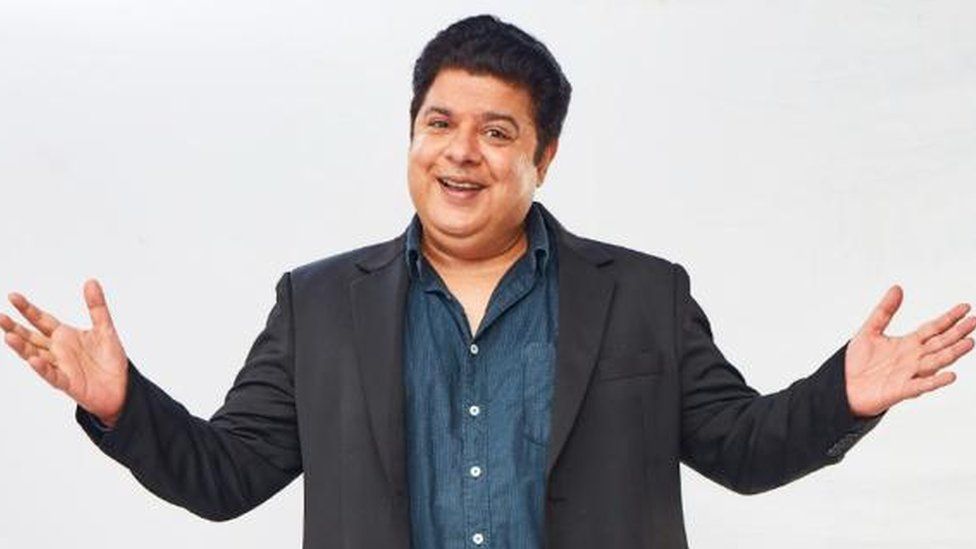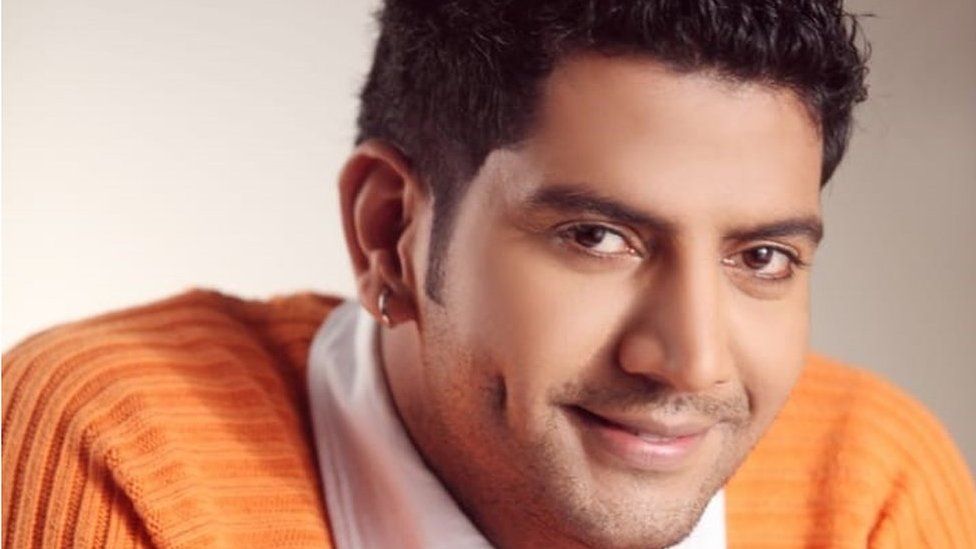
Bigg Boss, the wildly popular Indian version of Big Brother, has been mired in an ugly row since it premiered on Colors TV on Saturday.
The 16th season of the show, hosted by Bollywood superstar Salman Khan, has been criticised for including film director Sajid Khan as a housemate.
Four years ago, Khan was accused of sexual misconduct by eight female colleagues and a journalist.
He had denied the accusations and no police case was brought against him.
But ever since the show revealed the names of the housemates, hundreds of people, many of them women, have taken to social media to express their “disgust” and “anger” at his inclusion.
Singer Sona Mohapatra said Indian TV channels were a “depraved and a sad lot” for including men called out for sexual harassment.
Journalist Barkha Dutt tweeted that Khan’s inclusion showed “utter contempt for what so many women feel” and MeTooIndia – an unofficial account created by a journalist after the 2018 movement to amplify the voices of Indian survivors – wondered why the organisers were silent.
Since Saturday, ColorsTV and the show’s official Twitter account have put out several hundred promotional tweets, but they are yet to respond to the criticism.
The protest is also because of the reach of Bigg Boss – it is considered to be India’s most popular reality show, racking up tens of billions of hours of viewing time. Its popularity has gone up many times since 2020 when it was made available on Voot – an Indian digital streaming service.
So calls have been growing to drop Khan from the show – a petition to banish him from the Bigg Boss house has already received more than 5,000 signatures.
“This is sickening, and this is vile. It is extremely insulting and demoralising to victims and survivors who continue to fight for justice today,” the petition says.
Sukriti Chauhan, lawyer and public health advocate and a co-author of the petition, told the BBC that the allegations against the director were “quite disturbing, graphic and horrific” and giving him a prime-time slot on one of India’s most popular shows was “not right”.
“The power equation in the Hindi film industry is entirely tilted in favour of men. But women who want to join the industry go there to make a career just like you and me.”

Khan’s inclusion in the show, she says, alongside one of India’s biggest heroes like Salman Khan, will provide him with an opportunity to “whitewash his image” in public.
“So, we are asking ColorsTV to not give him that platform. We are asking them to not celebrate someone who has got very serious allegations against him.”
In India where there is deep-seated patriarchy, Ms Chauhan says that women already have an uphill battle and this sends out a message to those who made the allegations against him that they are being totally unseen and unheard.
“An industry known for abuse could take a better stand. In fact, as a country we could take a better stand,” she adds.
Viacom18, which owns ColorsTV and Voot, has not responded publicly to the criticism yet. The BBC has emailed them for comment.
The allegations against Khan came in 2018 – after the MeToo movement started in the US, many women in India took to Twitter to call out comedians, journalists, authors, actors and filmmakers.
Khan, a successful director who had worked with some of Bollywood’s biggest stars, was among those named by mostly aspiring actresses and a female journalist.
He denied the allegations, but was suspended by the Indian Film and Television Directors’ Association for a year.
After he was also dropped as director from his film Housefull4, he tweeted in 2018:
“In the wake of the allegations against me and the pressure being put on my family, my producer [and] the stars of my film Houseful4, I must take the moral responsibility of stepping down from my directorial post, till the time I can allay the allegations and prove the truth… I request my friends in the media to kindly not pass judgement till the truth is out.”
— Sajid Khan (@SimplySajidK) October 12, 2018
At Saturday’s premier, he acknowledged the allegations against him – he said he had been sitting at home for the past four years because he did not get much work, but blamed his downfall on his “arrogance”, saying that after a number of his films became hits, he started to believe that he was infallible.
“It’s said that failure destroys people. But in my case, it was success that destroyed me,” he said.
The fall from grace, he said, was “God’s way of telling him that he had to become a better person”.
But his return to the limelight obviously hasn’t gone to plan – the outrage over the allegations against him have meant that many are still unwilling to give him a second chance.

Read more India stories from the BBC:
- The Indian period drama firing up the box office
- The problem of ‘dirty money’ in Indian politics
- Why India’s abortion ruling is a huge step forward
- An Indian maharaja and a ‘mystery’ will
- Nostalgia as cinema returns to Kashmir after 23 years
- Unanswered questions in India sisters’ hanging
- Moonlighting debate divides Indian firms and workers


